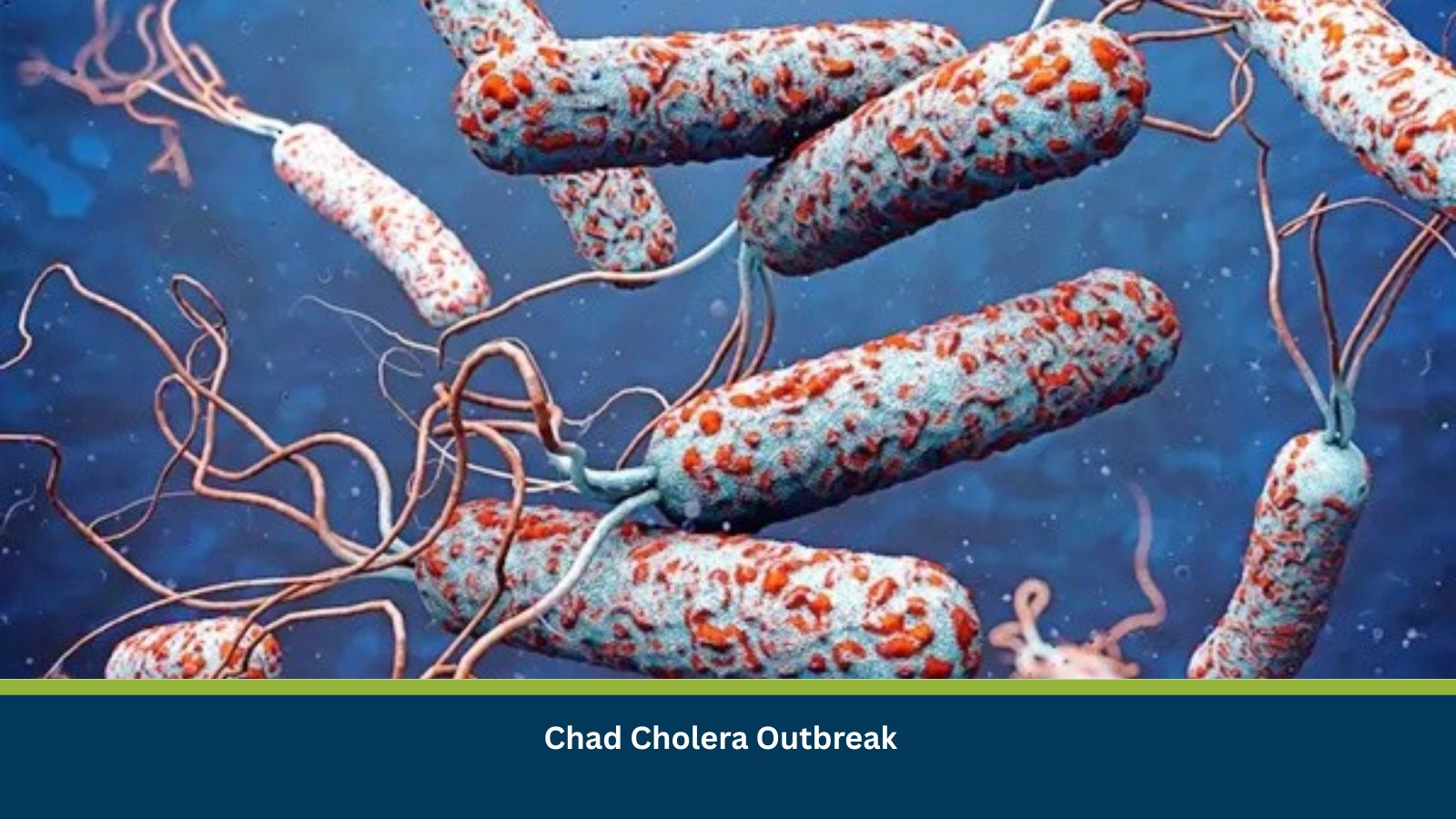What is Risk Analysis in the Context of Health Events
Risk analysis for a public health event like a cholera outbreak involves more than just counting cases. It requires an assessment of how the disease can overwhelm fragile healthcare systems, disrupt daily life, and exacerbate existing humanitarian crises. Cholera is an acute bacterial disease transmitted through contaminated water and food. In a country like Chad, which is already grappling with widespread malnutrition and a large refugee population, the lack of adequate sanitation and clean water makes it a severe public health emergency with widespread and compounding impacts.
Executive Summary
- Date of Incident: 24 September 2025
- Location: Chad
- Risk Category: Health
- Severity Score: 4/5
- Confidence Level: 90%
Chad is currently facing a nationwide cholera outbreak, a critical public health emergency exacerbated by pre-existing humanitarian crises. The outbreak is assessed as High in severity due to its nationwide scope, the country’s high vulnerability from inadequate water and sanitation infrastructure, and the compounded burden of multiple concurrent health emergencies. Historical patterns indicate the outbreak could persist for three to six months, with significant morbidity and mortality, particularly among vulnerable populations. Our confidence in this assessment is high, at 90%, given the clear reporting of a nationwide spread and the well-documented risk factors in the region.
Current Updates
As of Wednesday, September 24, 2025, Chad is grappling with a nationwide cholera outbreak. The situation report from September 22, 2025, confirms a widespread epidemic. This incident follows earlier warnings and localized outbreaks, notably in the Dougui Camp and Moundou, indicating a persistent and escalating public health challenge. International organizations and governments have initiated aid and vaccine distribution efforts, underscoring the severity and urgency of the situation.
Known Hotspots and Sensitive Areas
The most sensitive areas are densely populated urban centers and refugee camps due to poor sanitation and high population mobility. Key hotspots include Dougui Camp in Eastern Chad, the city of Moundou, and Abéché, which serves as a hub for aid. The capital, N’Djamena, also faces significant risks due to its large population and existing sanitation challenges. Areas with high concentrations of Sudanese refugees along the eastern border are particularly vulnerable, as many have limited access to healthcare and safe drinking water.
Impact on Transportation and Services
While cholera does not cause physical damage, it severely strains and overwhelms essential services. The outbreak places immense pressure on already fragile health infrastructure and highlights critical deficiencies in water supply and sanitation systems.
- Travel & Mobility: Outbreaks can trigger localized travel restrictions, heightened border screenings, and public advisories against non-essential travel. This impacts both internal and international movement.
- Supply Chain & Logistics: Disruption will arise from illness among personnel, localized road checkpoints for health screenings, and an intense surge in demand for critical medical supplies and safe water, straining already fragile supply chains.
- Utilities: The outbreak puts immense strain on water treatment and distribution systems, which are already inadequate. The crisis intensifies the demand for safe drinking water, burdening municipal supplies and highlighting the urgent need for infrastructure improvements.
Recommended Actions
- Implement Hygiene Protocols: Mandate stringent hygiene and sanitation protocols across all facilities. This includes providing accessible handwashing stations, ensuring regular disinfection, and offering safe, treated drinking water.
- Employee Health Monitoring: Educate all personnel on cholera symptoms and prevention. Establish a rapid response protocol for suspected cases, including isolation and safe transport to health facilities.
- Secure Water and Supply: Conduct an immediate audit of all water sources, ensuring chlorination or boiling. Pre-position essential supplies like safe drinking water and hygiene products to mitigate disruptions.
- Develop Communication Plans: Disseminate clear internal and external communication plans to provide consistent updates, promote awareness, and inform clients of any potential operational delays.
- Establish an Emergency Team: Form a dedicated Emergency Response Team (ERT) to monitor the outbreak, coordinate response activities, and liaise with local health authorities.
Emergency Contacts
- Police: 17
- Fire Department: 18
- Ambulance: 15
Final Thoughts
The nationwide cholera outbreak in Chad is a critical public health emergency that will significantly test the country’s already strained infrastructure. The most severe risks are not only from the disease itself but also from its compounding effect on existing humanitarian challenges. The confluence of a large, vulnerable refugee population, inadequate sanitation, and limited healthcare resources creates a highly volatile environment. This situation underscores the urgent need for a multi-faceted response, focusing on immediate medical intervention and, crucially, long-term investment in improving water and sanitation infrastructure. Businesses operating in Chad must prioritize the health and safety of their personnel through stringent hygiene protocols and a robust business continuity plan to navigate the prolonged and complex risks of this crisis.
Stay ahead of operational risks with real-time alerts, scenario modeling, and expert advisories with datasurfr’s Predict. Start your 14-day free trial of Datasurfr’s Risk Intelligence Platform today.






